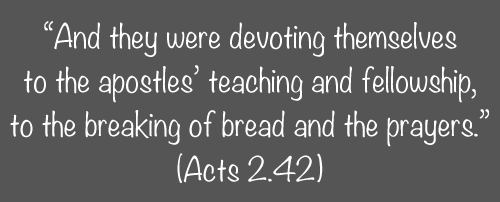We are called Holy Myrrhbearers Orthodox Mission, though mission is not the activity of the church as such, but rather the life of the Triune God shared with the world. Mission is the overflowing of the love of the Father, the Son and the Holy Spirit into all creation. This mission of God is already up and running, initiated in the pattern of self-sacrificial love in the life, death and resurrection of the Son of God and empowered by the outpouring of the Holy Spirit. The role of the church, established as the Body of Christ and filled with the Holy Spirit, is to discern this mission of God and collaborate with what He is already doing.
On the day of Pentecost, many of those who heard the apostles’ preaching were “cut to the heart” and they asked Peter and the others, “What does it mean?” and “Brethren, what shall we do?” And Peter said to them, “Repent, and be baptised every one of you in the name of Jesus Christ for the forgiveness of your sins; and you shall receive the gift of the Holy Spirit.” (Acts 2.12,37-38)
After they were baptised and received the gift the Spirit through the laying on of the apostles' hands (a mystery we preserve in the second part of baptism, chrismation), the new Christians lived a new life filled with the power of the resurrection, the grace of the Holy Spirit and oriented towards the kingdom of God:
In these words we have outlined a basic threefold framework or rule of the Christian life:
(1) the breaking of the bread — the holy eucharist, which manifests our communion with God and life of self-sacrificing love in the image of the life of the Holy Trinity
(2) the prayers — our common life of prayer centred on the psalms, canticles, hymns, scriptures, and Lord's prayer
(3) the apostles' teaching and fellowship — our personal discipleship (commitment, spiritual growth, prayer of the heart, ascetical struggle, and theological learning), as well as the fulfilment of our baptismal calling (and ordination) to minister to others
This threefold rule — the three Ds of Divine Liturgy, Daily Office, and Discipleship — is not a one-time or occasional act, but forms the very pattern of life of one who is a full member of the Body of Christ, who desires to grow to the “measure of the stature of the fulness of Christ.” (Ephesians 4.13)
In keeping with this fundamental model of Christian life exemplified in the New Testament church and preserved by Orthodox faithful throughout the past 2,000 years, Holy Myrrhbearers has implemented a threefold “mission rule” for those who desire to fulfil their membership and commit themselves to participating in the mission of God by discerning and carrying out a chosen ministry for His kingdom.
Sermon on the Feast of Pentecost
Fr Geoffrey outlines the mission rule in the sermon for the feast of Pentecost.
Mission Pledge
I pledge myself with love and zeal to full membership of Holy Myrrhbearers Orthodox Mission, according to the following threefold mission rule.
Divine Liturgy (“The Breaking of the Bread”)
I pledge myself to the kingdom of God to come but already enacted in the celebration of the Divine Liturgy. I commit to participating fully by my faithful attendance, sacrificial giving, and embodied liturgical action and prayer.
Daily Office (“The Prayers”)
I pledge myself to the extension of the kingdom through space and time in the unceasing prayer of the people of God. I commit to participating as often as I can in the weekly Sunday Mattins service—the service of the Holy Myrrhbearers—and other corporate liturgical services, and as far as possible to praying the mission’s daily office in unity with other members.
Discipleship (“The Apostles’ Teaching and Fellowship”)
I pledge myself to growth towards sanctification in Christ and full participation in the kingdom of God. I commit to practise the ascetical disciplines of prayer, fasting, and almsgiving, to deepen my knowledge of the Orthodox faith by study, and to witness for Christ by contributing to the mission’s outreach and educational activities, including at least one specific ministry.
To follow up on your pledge, please speak to Fr Geoffrey to express your interest in discerning an area of ministry or if you have any questions about full participation in the mission community.




